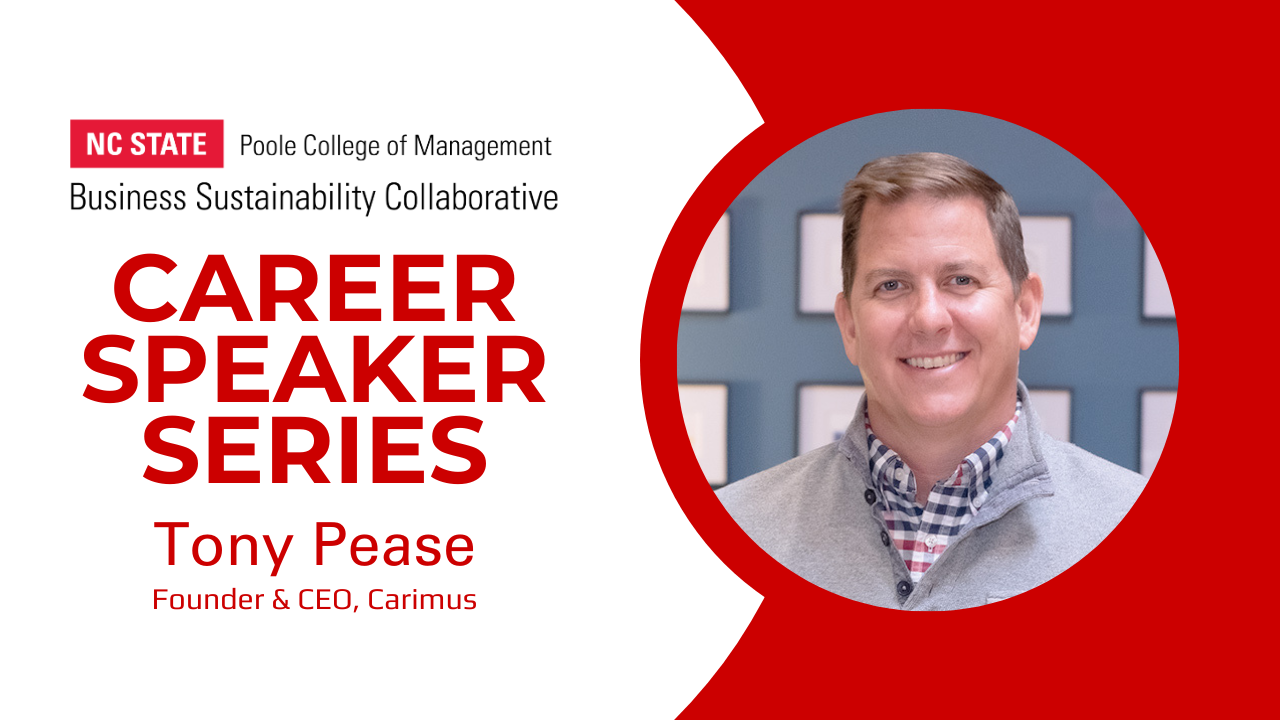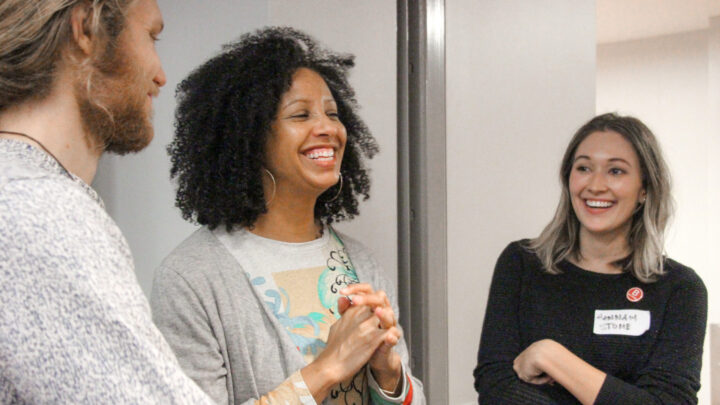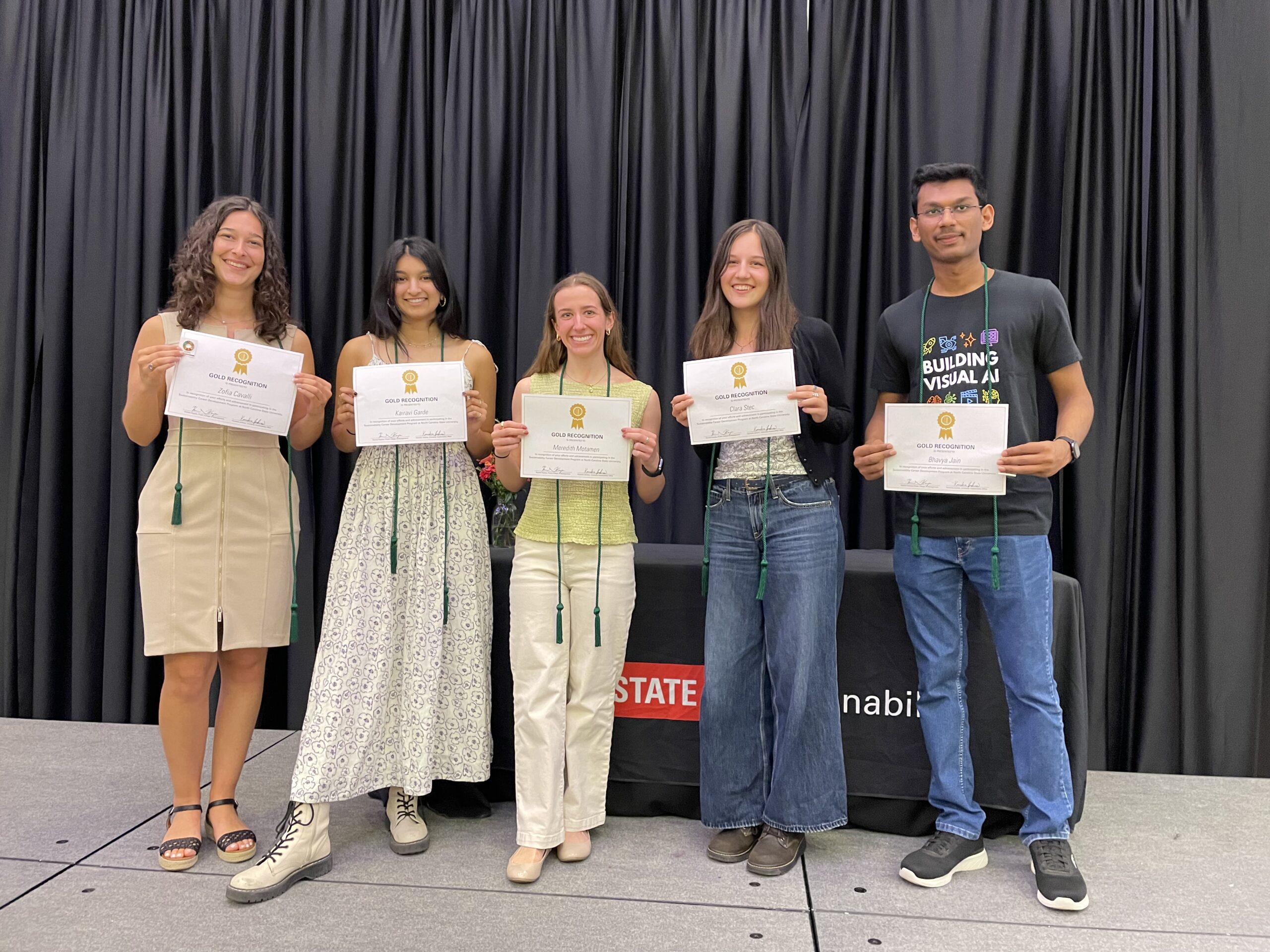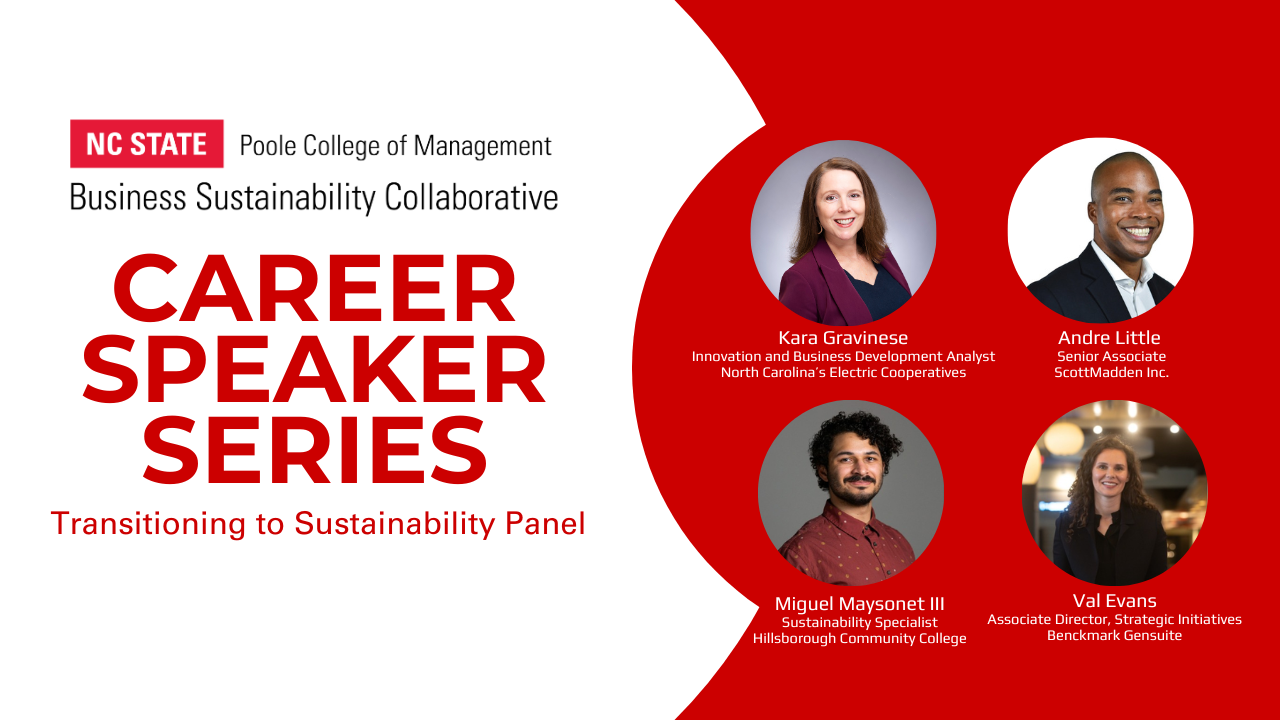BSC Career Speaker Series Recap: Tony Pease

Written by Suman Kasoji, Jenkins MBA Candidate
How can businesses balance the drive to make social and economic change while staying profitable? Raleigh-based Carimus is an award-winning digital strategy and transformation company that works specifically with clients that have high social impact projects. The company helps its clients by building out services and tools focused on rolling out their own specific ESG goals.
As part of the NC State Business Sustainability Collaborative’s Career Speaker Series, we had the chance to talk with Tony Pease, an NC State alumnus who is the Founder and CEO of Carimus. Tony covered a wide variety of topics ranging from sustainable product development to employee engagement tactics.
Below are some key takeaways from the chat with Tony:
The triple bottom line refers to the way businesses affect people, the planet, and profit. While the expectation is that businesses prioritize each of these aspects, the reality is that profit becomes central to the business’ existence, while people and the planet can be focused on providing it enables profitability. To fully realize the social and environmental impacts that a company wants to have, it must first be a healthy business that is profitable. Tony Pease says, “If you want to get people’s attention, you have to create direct business benefit in the near-term so that they can be patient for the long-term.”
“If you want to get people’s attention, you have to create direct business benefit in the near-term so that they can be patient for the long-term.”
There are several ways to view sustainability and ESG from a business perspective. Sustainability can be viewed as a set of specific strategies and practices that can be used to drive social and environmental impact, while ESG activities can be thought of as the metrics and tools used to quantify these strategies and practices. While some companies view sustainability goals as additional overhead that must be completed to comply with regulations, achieving these goals can be viewed as an opportunity to improve upon social and environmental issues with ESG reporting measuring the impact.
Technology can play a key part in creating a sustainable workforce. JouleBug, a Carimus company, gamifies the process of bringing ESG initiatives to life through education and competitions. Tony provided an example of a long-time client, Ikea, which ran a sustainable sourcing challenge through the platform. The competition encouraged employees to adopt sustainable packaging methods and sourcing materials that were grown in a sustainable way. By understanding human behavior and gamifying the process, JouleBug can advance the sustainability mission of companies while empowering their employees on an individual level.
Tony’s speech authentically exemplified the #ThinkandDo NC State ethos, igniting a sense of empowerment within us, urging us as students to aspire to be impactful changemakers.


